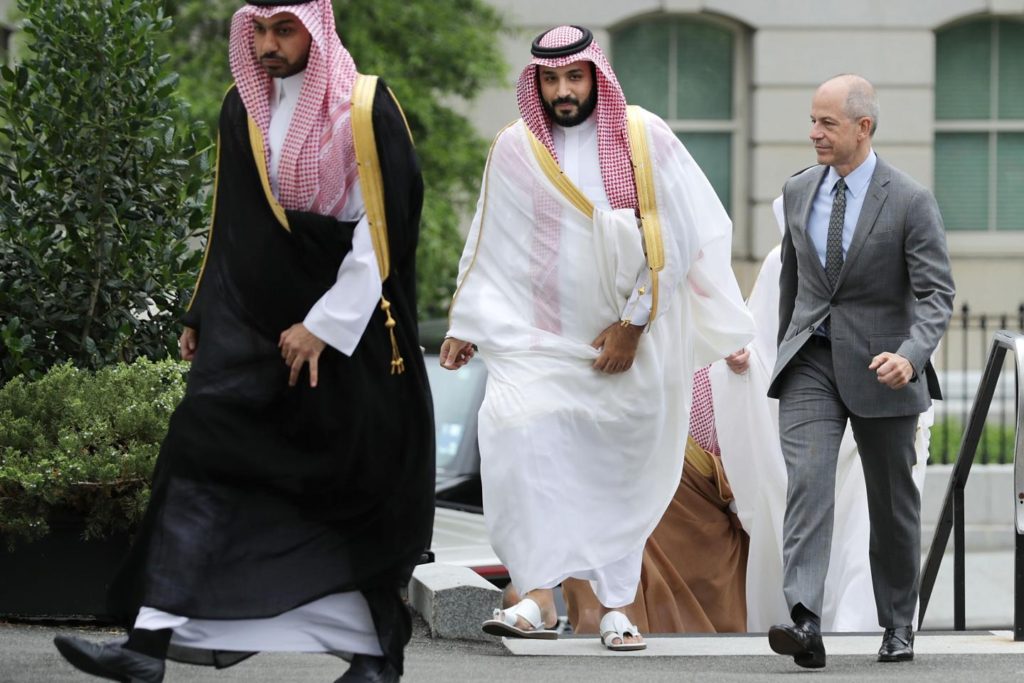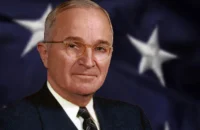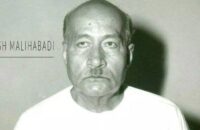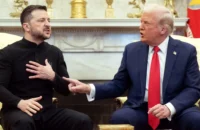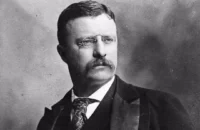By Jamal Khashoggi -Washington Post
In an interview with the news program “60 Minutes,” Crown Prince Mohammed Bin Salman said of Saudi Arabia before 1979, “We were living a very normal life like the rest of the Gulf countries. Women were driving cars, there were movie theaters in Saudi Arabia, women worked everywhere. We were normal people developing like any other country in the world until the events of 1979.”
I was a teenager in the 1970s and grew up in Medina, Saudi Arabia. My memories of those years before the twin disasters of 1979 — the siege of the Grand Mosque of Mecca and the Iranian Revolution — are quite different from the narrative that the 32-year old crown prince (known as MBS for short) advances to Western audiences. Women weren’t driving cars. I didn’t see a woman drive until I visited my sister and brother-in-law in Tempe, Ariz., in 1976.
The movie theaters we had were makeshift, like American drive-ins except much more informal. The movie was beamed on a big wall. You would pay 5 or 10 riyals (then approximately $1.50-$2) to the organizer, who would then give a warning when the religious police approached. To avoid being arrested, a friend of mine broke his leg jumping off a wall. In the 1970s, the only places on the Arabian Peninsula where women were working outside the home or school were Kuwait and Bahrain.
The first rule that affected Saudi women’s rights was not the result of a campaign by Wahhabi religious authorities or a fatwa. Many Saudis remember the sad story of a 19-year-old Saudi princess who tried to flee the country with her lover. They were both executed in 1977; the episode was the subject of a 1980 British documentary drama “Death of a Princess.” The reaction of the government to the princess’s elopement was swift: The segregation of women became more severe, and no woman could travel without the consent of a male relative.
In 1980, the minister of industry and electricity, Ghazi al-Gosaibi, sent a handwritten letter to King Khalid warning against restrictive measures on women’s images appearing in print and on TV media. He asked the king to revise these policies “so we would not be made an example of rigidity and stagnation in front of the whole world.” He was ignored.
MBS would like to advance a new narrative for my country’s recent history, one that absolves the government of any complicity in the adoption of strict Wahhabi doctrine. That simply isn’t the case. And while MBS is right to free Saudi Arabia from ultra-conservative religious forces, he is wrong to advance a new radicalism that, while seemingly more liberal and appealing to the West, is just as intolerant of dissent.
In the 1950s and 1960s, Saudi Arabia welcomed Egyptians who fled Egypt fearing that the president, Gamal Abdel Nasser, would imprison them for their beliefs. Many were part of the Muslim Brotherhood. They brought with them new approaches to Islamic thought and law that were welcomed by many of us, including our leaders.
King Faisal, who was assassinated in 1975, set up the first public schools for girls in the 1960s, a move staunchly opposed by the religious establishment. In his struggle to bring the country into the 21st century, he thought the Muslim Brotherhood could be a counterweight to the Wahhabi clerics.
King Faisal entrusted the highly respected Sheikh Manaa al-Qattan to modernize the Saudi judiciary. Reforms not otherwise possible began due to the scholarship of members of the Muslim Brotherhood, including labor laws, teaching of English and chemistry, and the partial creation of a legal code. Now the Saudi media, at the encouragement of the government, vilifies al-Qattan, saying he was a member of the Muslim Brotherhood. Why is that suddenly so objectionable?
In Saudi Arabia at the moment, people simply don’t dare to speak. The country has seen the blacklisting of those who dare raise their voices, the imprisonment of moderately critical intellectuals and religious figures, and the alleged anti-corruption crackdown on royals and other business leaders. Liberals whose work was once censored or banned by Wahhabi hard-liners have turned the tables: They now ban what they see as hard-line, such as the censorshipof various books at the Riyadh International Book Fair last month. One may applaud such an about-face. But shouldn’t we aspire to allow the marketplace of ideas to be open?
I agree with MBS that the nation should return to its pre-1979 climate, when the government restricted hard-line Wahhabi traditions. Women today should have the same rights as men. And all citizens should have the right to speak their minds without fear of imprisonment. But replacing old tactics of intolerance with new ways of repression is not the answer.

